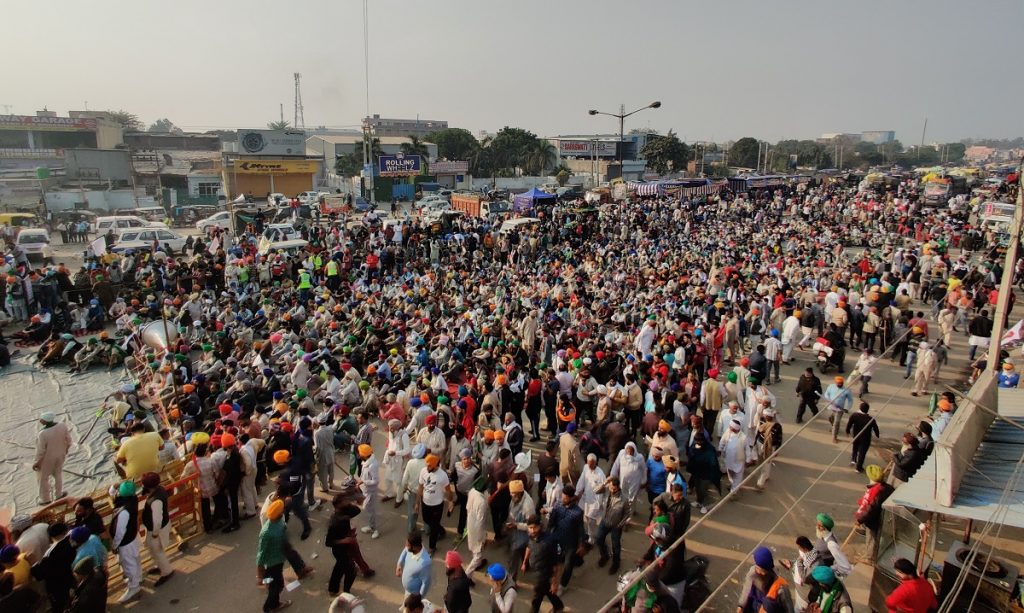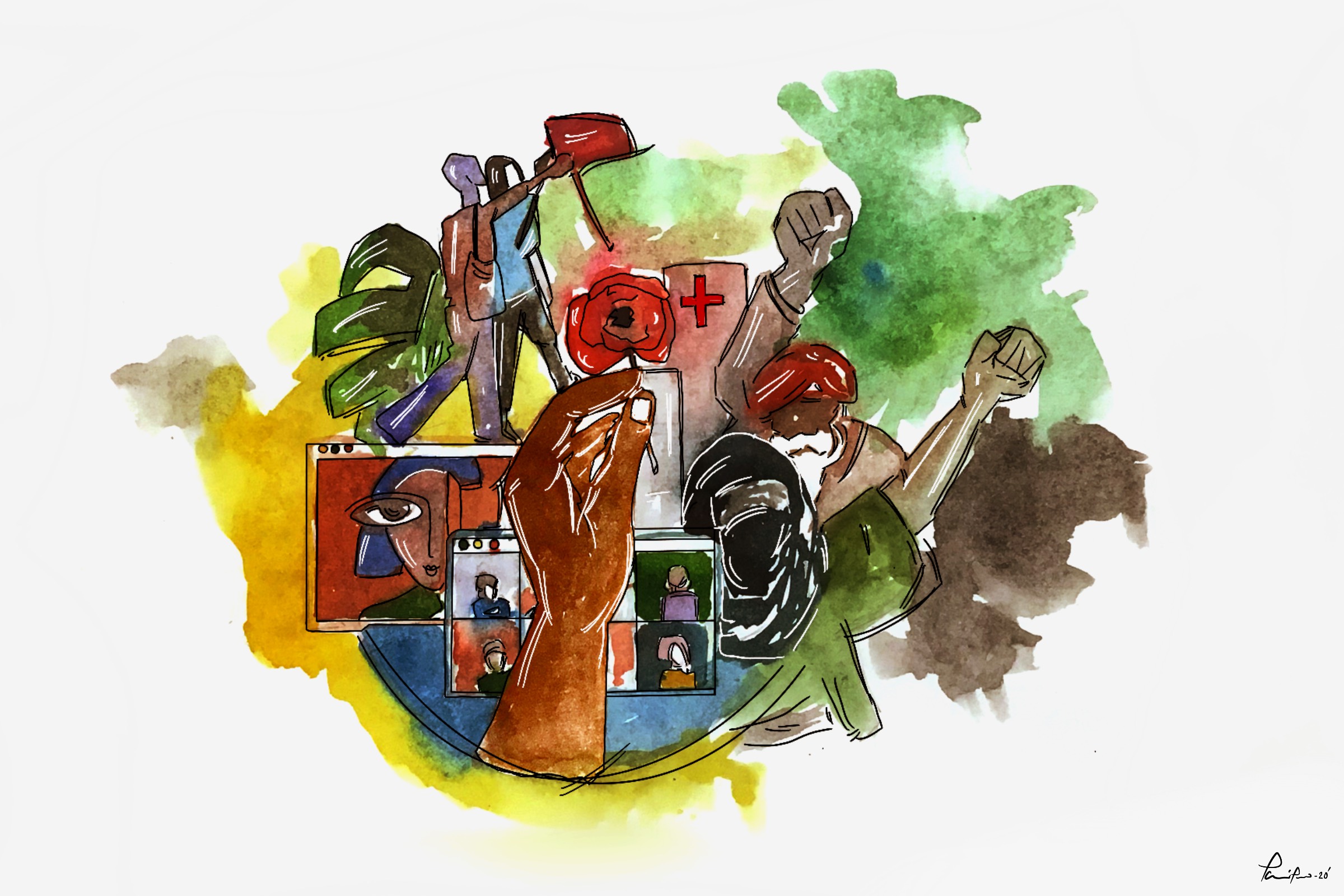The outbreak of COVID-19, the most damaging pandemic in more than a century, alongside the customary socio-political turbulence of contemporary times, made this a year of deep uncertainty, loss and suffering. And yet, owing to the paradoxes of human civilisation, it would be unfair to view 2020 through the solitary lens of tragedy.
A lot of good things also happened in 2020; events that might, in the course of time, become more instrumental than the pandemic itself.
The year has been a turning point alright, but here’s why 2020 has been a turning point for the better.
1. The defeat of Donald Trump

Donald Trump. Photo: Carlos Barria/Reuters
After four years of chaos, charlatanism and confounding conduct, Donald Trump was voted out in the US election held in November 2020. The end of Trump does not mean the end of Trumpism, but 2020 has at least denied continued authority to a man who is not only the most unpresidential president of all time, but whose professional naiveté is as dangerous as his personal megalomania. A Joe Biden presidency will turn over a new page for American democracy at best, or return the world’s most powerful country (just about) to the pre-Trump status quo at worst. But whatever Biden does, the worst excesses of a second Trump term have been avoided and the entire world should be grateful for that.
2. The power of strong women
What do Germany, Taiwan and New Zealand have in common? All three have managed the pandemic admirably. All three also have women at the political helm – Angela Merkel, Tsai Ing-wen and Jacinda Ardern, respectively. This is not to say that women necessarily make more efficient leaders than men during a crisis. This is to say that, contrary to prejudiced perception, women can lead during a crisis with aplomb, without the need for Churchillian rhetoric or the populist equanimity of Franklin D. Roosevelt. While the pandemic has exposed the leadership lacunae of the so-called strongmen (Trump, Boris Johnson, Jair Bolsonaro and Narendra Modi, to name a few), the performance of countries led by strong women should be seen as a stepping stone towards greater equality of representation at the highest echelons of politics.
3. The halt of hubris
Calls for global isolationism, diversion of funds from building healthcare to building statues (for ostensible unity), and a general smugness for the march of destiny had begun to set in among many of the leaders entrusted with taking us forward, before the pandemic struck to remind us that for all our anthropocentrism, we are still part of an ecosystem that makes us highly vulnerable in the absence of caution and calibration. Of course, this does not mean that false promises or bullishly bright predictions for the future will disappear, but it does mean that each of us will be more skeptical in sorting well-founded hope from the hollow clouds of hubris.
4. Institutions rising to the occasion
If Kerala was able to deal with the first wave of COVID-19 with commendable composure, it was because of the sustained investments made by the state in healthcare institutions. If most African countries gave lie to doomsday prognosis from Western media in combating the virus, it was because their institutions had already acclimatised themselves in dealing with fatal communicative diseases. If the World Health Organization (WHO) re-appeared in the limelight, it was because of its unprecedented reach and reliability in acting as a transnational hub in overcoming the pandemic. When the history of 2020 is written, several individuals will be glorified (rightly or wrongly) to inspire posterity, but without the framework of solid and stable institutions, no soloist would ever have saved any of us from the brink.
5. The return of democratic dissent
Notwithstanding the challenges of public assembly during a pandemic, 2020 noticed a much needed resurgence in taking to the streets. Be it the brave youth of Hong Kong courting arrest to stand up to China’s burgeoning authoritarianism or frustrated crowds in Minsk refusing to accept Alexander Lukashenko’s propaganda any longer or the Israeli citizens digging deep to call out the machinations of Benjamin Netanyahu, the spirit of dissent, while not always successful, reasserted its rightful place in democracies endangered by demagogues in 2020.
6. India finds its voice

Farmers who are protesting the three Central laws at the Delhi border. Photo: Ismat Ara/The Wire
Whereas the first few months of 2020 witnessed students and women taking the lead to protest against the partisan legislation of Citizenship Amendment Act (CAA), before being derailed by the pandemic, the closing months of the calendar have been dominated by the agitations of farmers in opposition to hastily passed farm laws. Delhi, which had not seen such mass fervour against the government since the 2011 anti-corruption protests, became a space for political resistance once more in 2020, with Indians demonstrating emphatically that no matter the crumbling edifice of Indian democracy, its constituents can still crack up the noise for accountability.
7. Solidarity goes global
It is easy to dismiss black squares on Instagram, sportspersons taking a knee before a match, or a prominent broadcaster flashing “Black Lives Matter” intermittently as examples of futile optical allyship. But the very fact that an instance of inexcusable police brutality in Minnesota that killed George Floyd in May, can resonate from Manchester to Mumbai, from Berlin to Baghdad, proves that in the digital age, solidarity has well and truly gone global. While it is reasonable to doubt how protests overseas will contribute towards dismantling systemic racism in America as well as whether every reform demanded by BLM members is legitimate, 2020’s ability to deliver an interconnected public sphere where millions urged for more humanity from humans, should hold us in good stead in tackling other similarly provocative but pivotal issues in the future.
8. The triumph of science
Yes, it will take a long time before everyone who needs to be vaccinated will be immunised. Yes, the fault lines of geopolitical privilege will dictate the pandemic’s resolution. But no, our species has not forgotten how to collaborate, the most fundamental skill that has allowed us to surmount everything from beasts to plagues to wars. Considering the divisions that imperil us today – as citizens, as countries, as co-inhabitants of the earth – the victory of science in releasing a vaccine with the swiftness it has, besides the relentless work on developing several others, is the best reason this year has provided to retain our hope in humanity.
9. Taking cognisance of climate change

The blaze burning across 300,000 hectares within an hour’s drive of Australia’s largest city, Sydney. Photo: ReutersMick TsikasReuters
Bushfires in Australia, locusts in Kenya, volcanic eruptions in the Philippines, all of which transpired in 2020, merely represent the tip of the iceberg of the climate crisis. But it is the visual and visceral nature of climate calamities this year that is bound to make the naysayers sit up and take notice, far more than the most irate dressing-down by Greta Thunberg. The pandemic has produced a substantial fall in global carbon dioxide emissions this year, which must be taken as an inadvertent blessing to promote urgent dialogue and action against our biggest threat today – climate change. After all, the pandemic may just have been a dress rehearsal for taking cognisance of the bigger challenges that lie in store.
10. A break from tunnel vision
Several months of lockdown in 2020 produced few meaningful answers, but almost all of us pondered over what it means to be human, to come in contact with other humans, to take precautions not just for oneself but for the grandmother of the toddler in a supermarket counter that we have never met. 21st century life can be ruthless, selfish, and unreflective. 2020 allowed us, notwithstanding the costs, time to slow down, to resume abandoned hobbies, reconnect with long lost friends (over social media, of course), and broaden our civilisational sight beyond the tunnel vision that normality invariably traps us in.
11. Zooming into the future
While Zoom fatigue, the warmth of loved ones, and fluctuating internet are among a range of issues that make Zooming less than perfect, we cannot underestimate the transformative impact 2020 has had in terms of the logistics of communication. We can now be hired or fired without ever moving out of our room or our pyjamas. Journalists can no longer be ignored by politicians for an interview due to travelling complications. Entire degrees can be completed without paying flight fares, rent, or the emotional cost of staying away from one’s family. Given the trajectory of technology, the Zoom revolution would have eventually arrived, step by step; 2020 has ensured it unleashed itself in one giant leap.
Priyam Marik is a post-graduate student of journalism at the University of Sussex, United Kingdom.
Featured image credit: Pariplab Chakraborty

